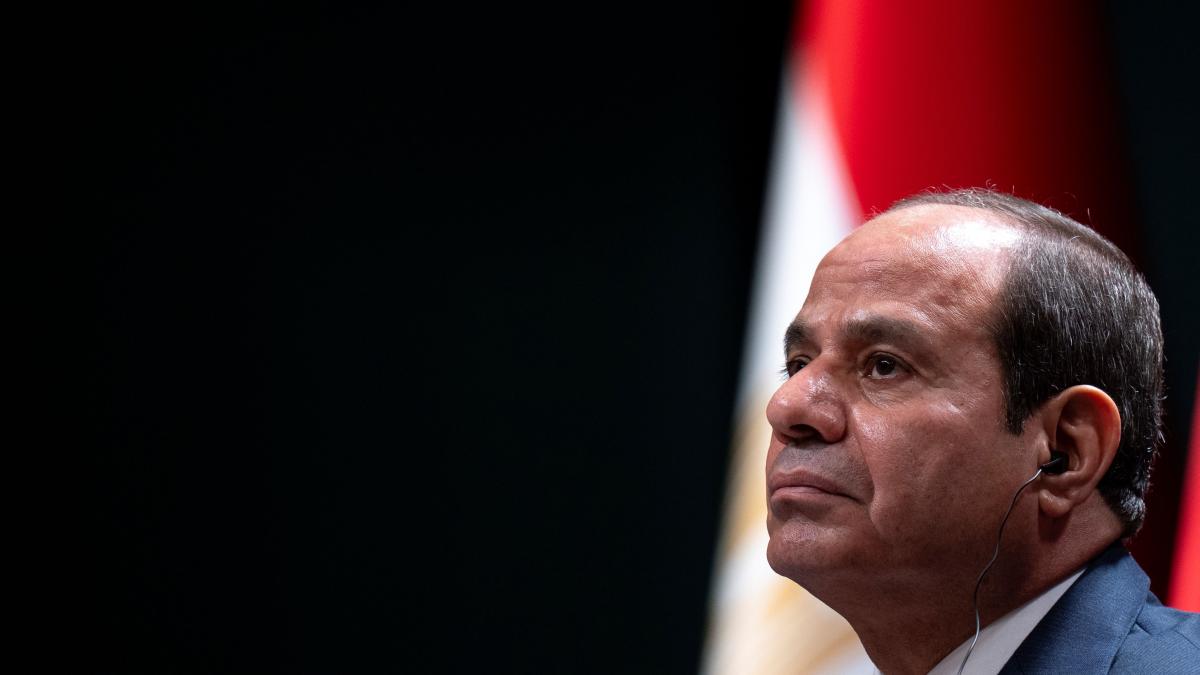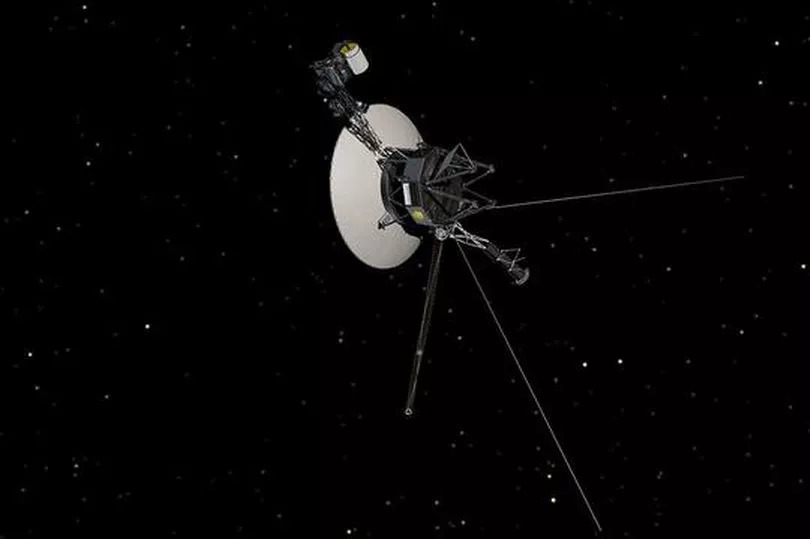
Despite the escalating regional conflict at its doorstep in neighboring Gaza, Egypt’s future has become inexorably tied to events far south of its borders.
This article may contain affiliate links that Yahoo and/or the publisher may receive a commission from if you buy a product or service through those links.
With Ethiopia’s Grand Ethiopian Renaissance Dam, or GERD, on the Blue Nile having become a fait accompli, Egypt had already been feeling the need to step up its presence in the Horn of Africa. But the need to exert influence in the region became more urgent after Hamas’ Oct. 7 attack on Israel last year and the ensuing Israeli offensive in Gaza.
In a stated bid to support Hamas, the Yemen-based Houthi militia has regularly attacked commercial shipping on the Red Sea. This has reduced transit through the maritime lane leading to the Suez Canal, cutting canal crossings by 66 percent and dealing a severe financial blow to the Egyptian economy.
To get more in-depth news and expert analysis on global affairs from WPR, sign up for our free Daily Review newsletter.
With both its water resources and Suez Canal revenues now dependent on events in the region, the Horn of Africa has become a strategic focus for Cairo, which is now anxiously attempting to enhance its presence there.
Over the summer, Egypt established a defense and cooperation agreement with Somalia. The deal, signed during a visit by Somali President Hassan Sheikh Mahamoud to Cairo in August, envisions closer economic, diplomatic and defense ties. Since then, Egypt has sent at least two shipments of weapons to Mogadishu.
More importantly, the agreement includes the deployment of up to 10,000 Egyptian troops to Somalia over the coming months. As many as 5,000 of them will operate within the African Union peacekeeping mission in Somalia, which has been helping the government fight Al-Shabab militants. But the deal envisions Cairo sending an additional 5,000 troops, with a mandate that remains unclear.
“If they are deployed along the border between Somalia and Ethiopia, for example, there is a risk of military tensions between Ethiopia and Egypt, and potentially skirmishes between the two sides,” Nael Shama, a Cairo-based scholar specializing in international relations in the Middle East, told WPR. “Sending troops to Somalia indicates that Egypt wants a military presence there,” Shama added. “But at the moment, it is unclear how this deployment might influence negotiations with Ethiopia over the GERD.”
For years, Egyptian officials attempted to secure an agreement with Ethiopia to ensure a steady flow of water to the Nile River, 80 percent of which comes from the Blue Nile upstream.
In 2015, Egypt, Sudan and Ethiopia signed a declaration of principles that was supposed to lead to a formal agreement sponsored by the African Union on how to share the river’s water resources. It never materialized.
Ethiopia began to produce electricity from the $4.2 billion dam in early 2022. When Addis Ababa announced in September 2023 that it had filled the dam, Cairo called the measure “illegal,” because a final deal had not been reached between the countries in the Nile Basin—most prominently Sudan—that will be affected by the dam.
Egypt is arriving comparatively late to the Horn of Africa compared to other outside powers, and under the duress of geopolitical and economic pressures. This is unlikely to inspire clear thinking and strategic planning from Cairo.
The Nile provides about 90 percent of Egypt’s fresh water supply. Egyptian authorities have argued that a mere 2 percent loss in Nile water flow would eliminate 200,000 acres of Egypt’s irrigated land, imperiling the country’s agricultural sector and overall economy. But with the GERD now completed, Cairo enjoys little leverage to secure the water volumes it needs.
As such, Egypt saw an opening in Somalia’s own tensions with Ethiopia, with Mogadishu particularly angered by Addis Ababa’s apparent readiness to recognize the breakaway Somali province of Somaliland.
In January, Ethiopian Prime Minister Abiy Ahmed and Somaliland’s leader, Muse Bihi Abdi, signed a memorandum of understanding that will pave the way for landlocked Ethiopia to secure a 50-year lease on a 13-mile stretch of Somaliland’s coast, where it would build a maritime base. In exchange, Ethiopia, which lost access to the sea when Eritrea seceded in 1991, will be the first country to recognize Somaliland’s self-declared independence.
An Ethiopian presence on the Red Sea would further challenge Cairo’s weight in the region.
“Historically, Egypt thought about the Red Sea as its backyard,” says Shama. When new powers began to increase their influence in the area over the past decade, it was not necessarily a problem, Shama explained, because they were largely Egyptian allies. “But if Ethiopia gets a naval base on the Red Sea, Cairo will face an adversarial power that controls both the Blue Nile water flow and can influence Red Sea trade routes.”
More adversity in the Red Sea would only compound Egypt’s economic difficulties. As noted, the Houthi attacks on commercial shipping have cratered Egypt’s Suez Canal revenues, with shipping companies now choosing to redirect traffic around Cape Horn in Southern Africa to avoid the Red Sea. Before the crisis, about 70-80 ships passed through the strategic crossing daily. That number has dropped to roughly 20 today.
Egyptian President Abdel Fattah el-Sisi stated in September that since the Houthis began targeting Red Sea shipping, Egypt had lost roughly $6 billion in Suez Canal revenues, or about 50-60 percent. In that same speech, he went on to say that if the situation were to go on, there would be serious consequences “in our region and possibly around the world.”
Unluckily for Egypt, however, major shipping companies now seem to be willing to absorb the costs and operational realities of redirecting maritime traffic around Africa to move goods between Asia and Europe for the foreseeable future.
Larger vessels with valuable cargoes continue to avoid the Red Sea, mainly because the combined cost of more expensive insurance and Suez Canal fees remains, in general, higher than what shipping companies pay in extra fuel to go around Africa, according to research by Azure, a consultancy.
Despite operations by Western navies in the Red Sea and the bombing of Houthi targets in Yemen by the U.S. and Israel, freedom of navigation—especially in the strategic Bab al-Mandab straight—remains elusive. Western countries’ appetite to commit additional military assets to the region to secure trade routes seems minimal, especially at a time when other military contingency plans for the region’s escalating conflict are likely being considered. This means that commercial shipping is unlikely to return to its normal patterns in the short term.
Economically, Egypt has the most to lose from this new normal in the Red Sea, but Cairo remains unable to influence events in the region by itself.
As a strategically important region for global trade and regional security, the Horn of Africa is one of the main arenas in which the rise of a multipolar world is playing out. Independent of the resources it can channel toward boosting its position there, Egypt is arriving comparatively late compared to other outside powers, and under the duress of geopolitical and economic pressures. This is unlikely to inspire clear thinking and strategic planning from Cairo.
For years, the U.S., China and Russia have aimed to extend their presence in the Horn. But it is the Gulf states—especially the UAE, but also Saudi Arabia and even Iran—that are successfully securing political allegiances to cement their hold on resources, trade assets and military outposts in the region. Turkey is also expanding its military and economic influence there.
Rather than being able to depend solely on its military to shape events in the Horn of Africa, Egypt will instead be forced to navigate complex networks of transactional and often contradictory regional alliances, at a time when it has few economic tools at its disposal due to its own financial and economic crises.
Cairo is aiming to secure leverage, but the impact that Egyptian military influence can have in the Horn of Africa remains uncertain. More importantly, a deepening of Egyptian military involvement in the region might help inflame tensions without necessarily allowing Cairo to secure its interests.
Francisco Serrano is a journalist, writer and analyst. His work has appeared in Foreign Policy, Al-Monitor, Weapons of Reason, The Outpost, Foreign Affairs and other outlets. His latest book, “As Ruínas da Década,” about the Middle East in the decade after the 2011 popular revolts, was published in 2022.
The post Egypt’s Future Increasingly Passes Through the Horn of Africa appeared first on World Politics Review.
EMEA Tribune is not involved in this news article, it is taken from our partners and or from the News Agencies. Copyright and Credit go to the News Agencies, email news@emeatribune.com Follow our WhatsApp verified Channel





